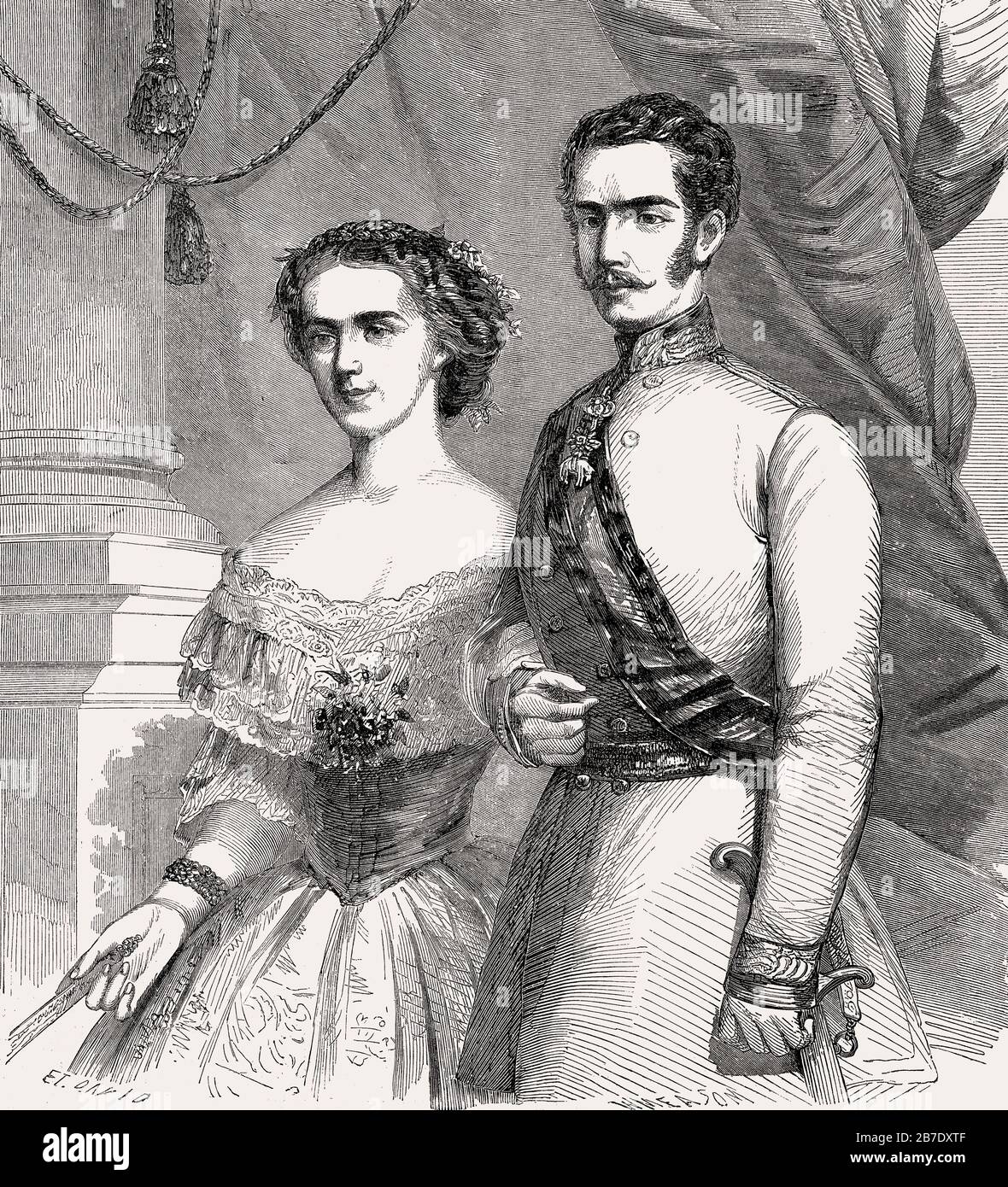
Franz Karl was physically as well as mentally of weak constitution and was therefore hardly suitable for a reign. Since no issue from the marriage of the heir to the throne were expected, Archduke Ferdinand (emperor from 1835), his next elder brother Franz Karl was to continue the succession of the Habsburgs, which is why the birth of his son Franz Joseph at the Viennese court was given special importance. Because his uncle, reigning from 1835 as the Emperor Ferdinand, was weak-minded, and his father unambitious and retiring, the mother of the young Archduke "Franzi" brought him up as a future Emperor, with emphasis on devotion, responsibility and diligence. He was succeeded by his grandnephew Charles I & IV.įranz Joseph's family gathered in prayer, 1839įranz Joseph was born on 18 August 1830 in the Schönbrunn Palace in Vienna (on the 65th anniversary of the death of Francis of Lorraine) as the eldest son of Archduke Franz Karl (the younger son of Holy Roman Emperor Francis II), and his wife Princess Sophie of Bavaria. The Emperor died in 1916, after ruling his domains for almost 68 years. That activated a system of alliances declaring war on each other, which resulted in World War I. On 28 June 1914, the assassination of his nephew Franz Ferdinand in Sarajevo resulted in Austria-Hungary's declaration of war against the Kingdom of Serbia, which was an ally of the Russian Empire. The Bosnian Crisis was a result of Franz Joseph's annexation in 1908 of Bosnia and Herzegovina, which had already been occupied by his troops since the Congress of Berlin (1878). He ruled peacefully for the next 45 years, but personally suffered the tragedies of the execution of his brother Emperor Maximilian I of Mexico in 1867, the suicide of his son Crown Prince Rudolf in 1889, the assassination of his wife Empress Elisabeth ("Sisi") in 1898, and the assassination of his nephew and heir-presumptive, Archduke Franz Ferdinand, in 1914.Īfter the Austro-Prussian War, Austria-Hungary turned its attention to the Balkans, which was a hotspot of international tension because of conflicting interests of Austria with not only the Ottoman but also the Russian Empire. He concluded the Austro-Hungarian Compromise of 1867, which granted greater autonomy to Hungary and created the dual monarchy of Austria-Hungary.

įranz Joseph was troubled by nationalism during his entire reign. Although Franz Joseph ceded no territory to the Kingdom of Prussia after the Austrian defeat in the Austro-Prussian War, the Peace of Prague (23 August 1866) settled the German Question in favour of Prussia, which prevented the unification of Germany from occurring under the House of Habsburg. The Austrian Empire was forced to cede its influence over Tuscany and most of its claim to Lombardy–Venetia to the Kingdom of Sardinia, following the Second Italian War of Independence in 1859 and the Third Italian War of Independence in 1866. Largely considered to be a reactionary, he spent his early reign resisting constitutionalism in his domains. Franz Joseph (his father having renounced his rights) then acceded to the throne. In December 1848, Franz Joseph's uncle Emperor Ferdinand abdicated the throne at Olomouc, as part of Minister President Felix zu Schwarzenberg's plan to end the Revolutions of 1848 in Hungary.

From to 24 August 1866, he was also president of the German Confederation.

In the early part of his reign, his realms and territories were referred to as the Austrian Empire, but were reconstituted as the dual monarchy of the Austro-Hungarian Empire in 1867. Franz Joseph I on the invention of the phonographįranz Joseph I or Francis Joseph I ( German: Franz Joseph Karl Hungarian: Ferenc József Károly 18 August 1830 – 21 November 1916) was Emperor of Austria, King of Hungary, and the other states of the Habsburg monarchy from 2 December 1848 until his death on 21 November 1916.


 0 kommentar(er)
0 kommentar(er)
